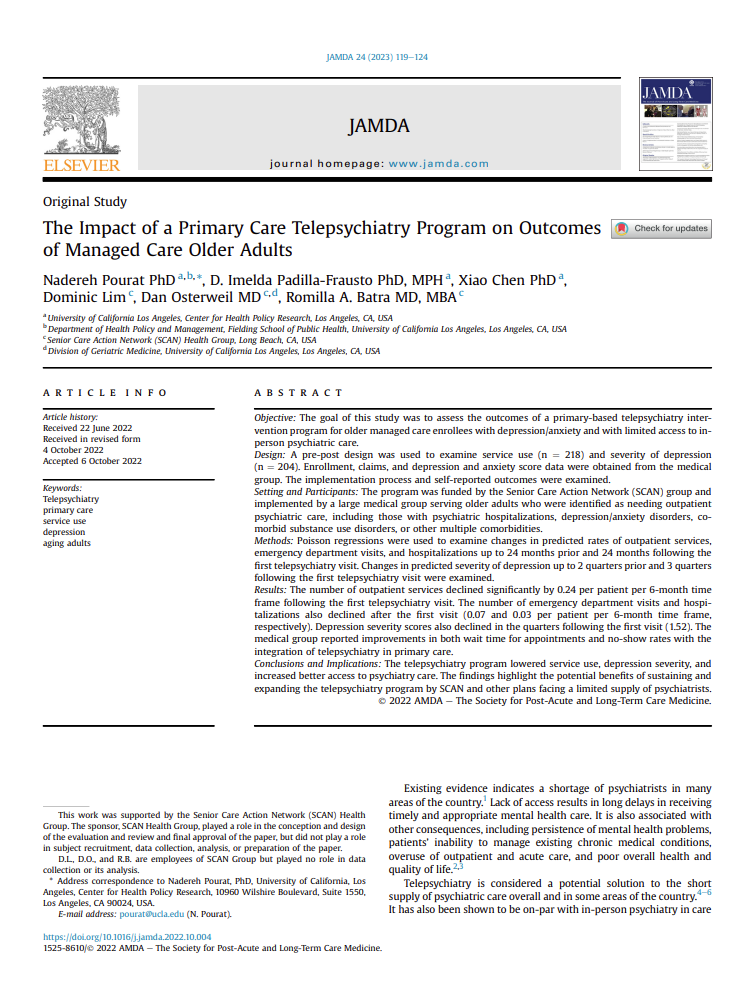Headline
A health plan-led telepsychiatry program for older adults can address the shortage of psychiatrists to improve outcomes related to depression and access to mental health care.
Context
While telepsychiatry programs have been shown to be cost-effective and deliver comparable outcomes as in-person psychiatry, some patient populations (such as older adults) may experience barriers to accessing virtual care. SCAN Health Plan implemented a telepsychiatry program from 2019-2020 to support aging enrollees with behavioral health needs who were living in more rural settings to access behavioral health care in primary care settings. This pre-post study examined how telepsychiatry participation affected utilization, depression severity, and access to care.
Findings
Most patients served by the telepsychiatry program had moderately severe to severe depression. After participating in the telepsychiatry program, enrollees had lower utilization of outpatient services, emergency department visits, and hospitalizations. They also had reduced depression severity, as measured by PHQ-9 scores.
Takeaways
Telepsychiatry may reduce health care utilization by improving the ability of patients to manage their physical and mental health conditions. Integrating telepsychiatry into primary care workflows – and supporting communicating between primary care providers and psychiatrists – may reduce stigma associated with psychiatrist visits and improve timely access to care, especially for older adults living in areas with psychiatrist shortages.




